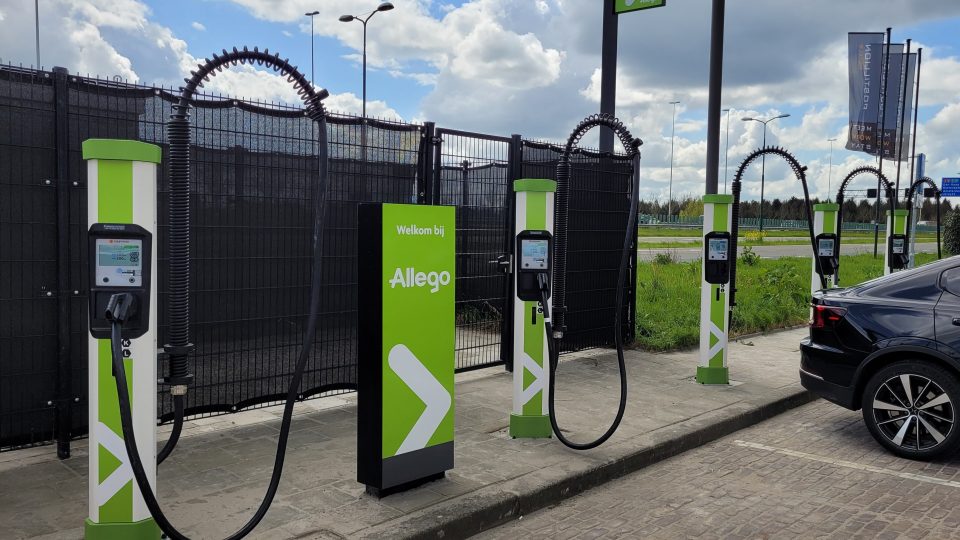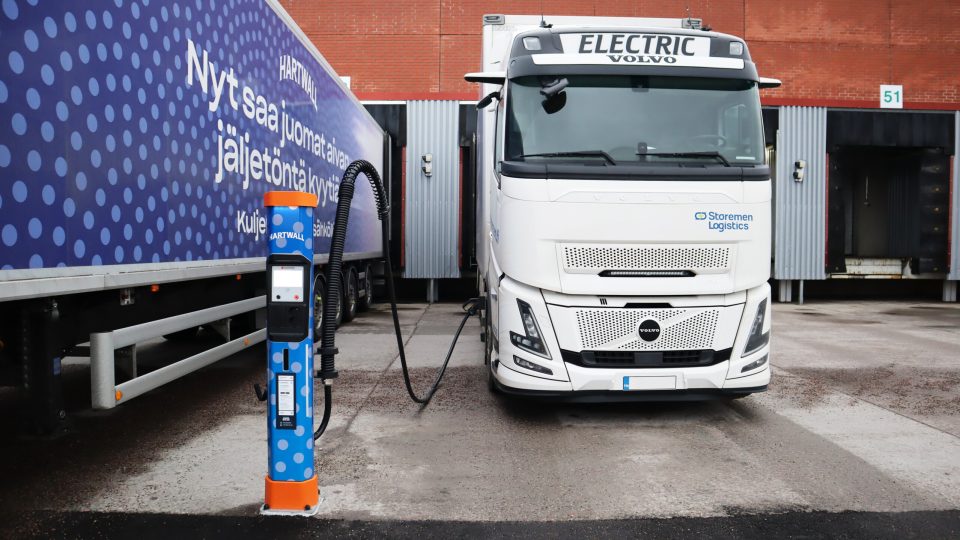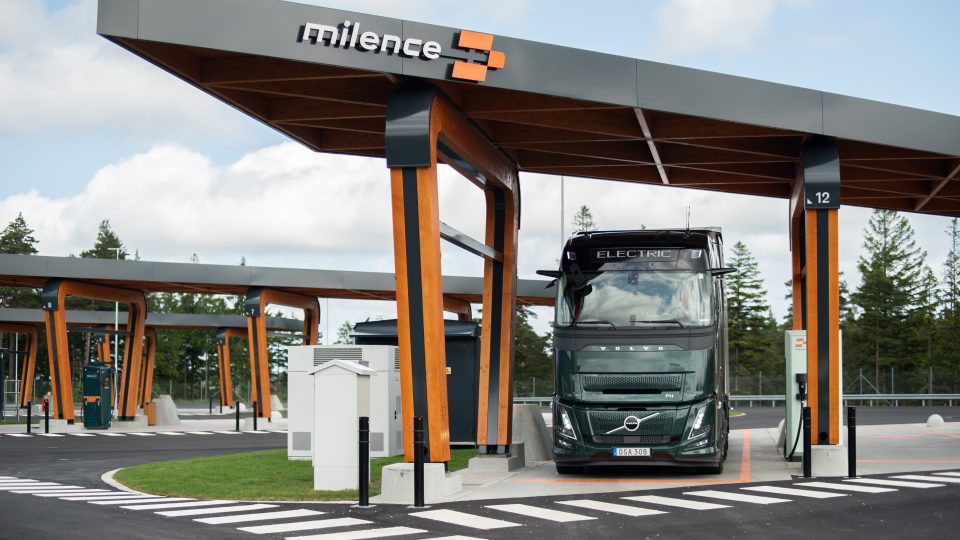Pantographs for trucks? Siemens Mobility and Continental will work on the so-called eHighway technology
Siemens Mobility and Continental will work on a project aimed at manufacturing pantographs for trucks. The so-called eHighway technology from Siemens Mobility has the target to significantly reduce CO2 emissions by electrifying key stretches of highway-networks with overhead contact lines. The new partnership combines expertise from two technology worlds: Siemens Mobility is a specialist in rail electrification, while Continental Engineering Services is a development and production service provider for automotive technologies.
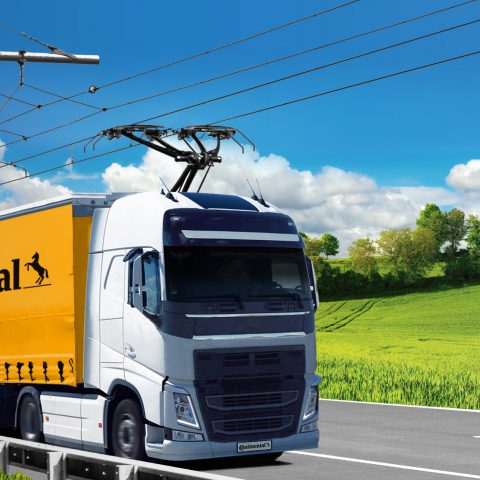
Siemens Mobility and Continental will work on a project aimed at manufacturing pantographs for trucks. The so-called eHighway technology from Siemens Mobility has the target to significantly reduce CO2 emissions by electrifying key stretches of highway-networks with overhead contact lines. The new partnership combines expertise from two technology worlds: Siemens Mobility is a specialist in rail electrification, while Continental Engineering Services is a development and production service provider for automotive technologies.
Potrebbe interessarti
Siemens CV will soon release new motor platform and e-axle for electric trucks. Our interview with CEO Mart Verschoor
Pantographs for trucks, the German plan to electrify autobahns
«Highway freight transport plays a central role in the fight against climate change. In Germany, it accounts for one-third of all the CO2 emissions in the transport sector. Truck manufacturers are pursuing various concepts to reduce this burden. With its eHighway, Siemens Mobility has already developed a ready-to-use technology for energy-efficient, cost-effective and emission-free truck transport that can be combined with other drive systems to become the backbone for fighting climate change in this sector», said Michael Peter, CEO of Siemens Mobility.
The decisive factor with the eHighway is that there ́s no need to electrify complete autobahns. The ‘National Platform for the Future of Mobility’, an innovation initiative of the German Federal Ministry of Transport, recommends that 4,000 kilometers of autobahns be equipped with overhead line systems by 2030, taking into account that roughly two-thirds of the fuel consumption in long-distance truck transport occurs on the most heavily traveled 4,000 kilometers of the 13,000-kilometer autobahn network. If this network core can be electrified and trucks operating on the routes with electric drives can be easily supplied with electricity, this would make a major contribution to climate protection. As a matter of fact, the eHighway is currently being tested on three public routes in Germany.
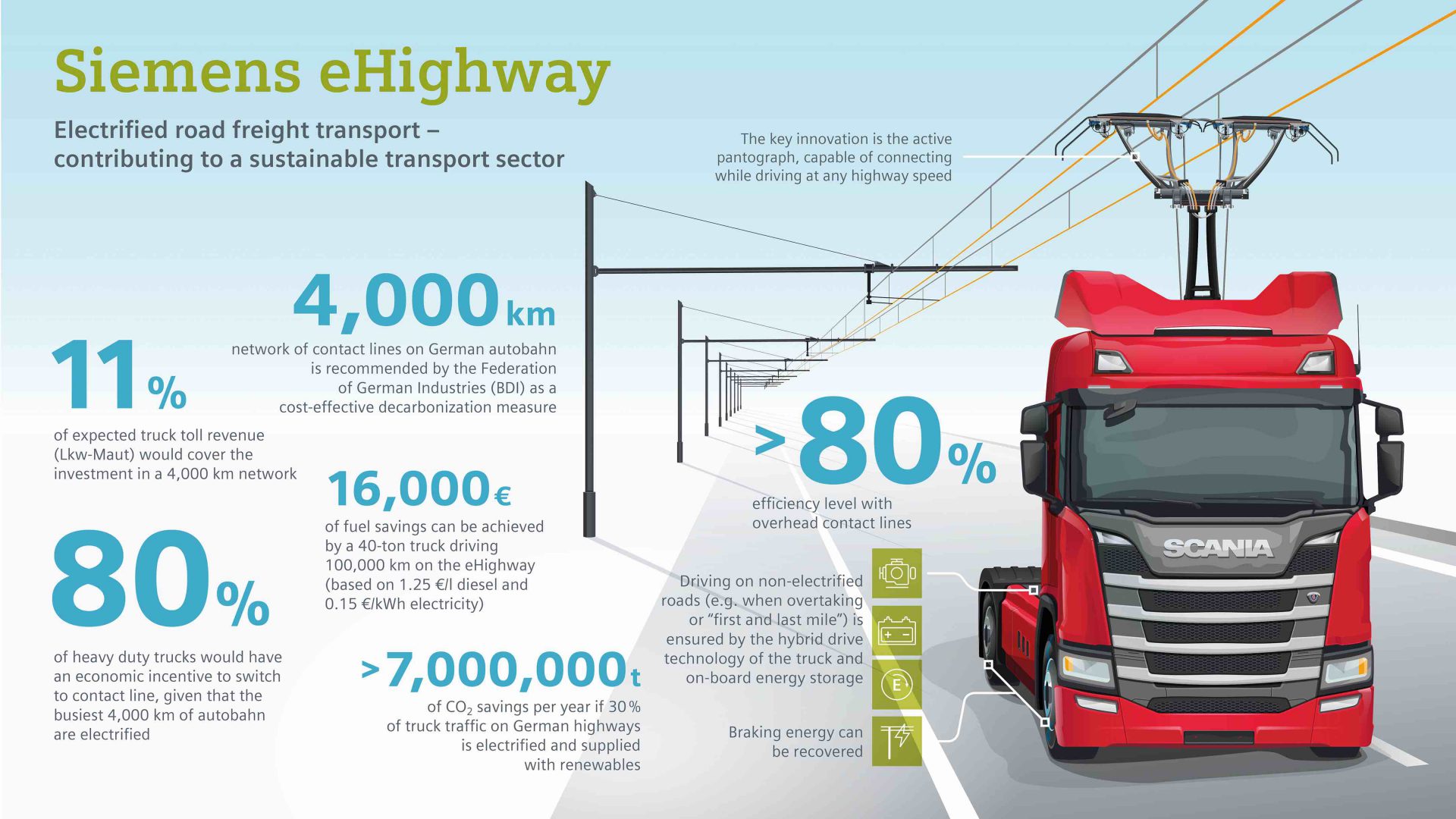
Charging batteries without using fuel
Finally, on the eHighway, trucks will be able operate completely electrically and at the same time charge their batteries without using fuel. «We’re applying the principle of rail electrification to the highway. The pantographs will be further developed and manufactured to meet automotive standards. The partnership between Siemens Mobility and Continental Engineering Services marks a major step toward achieving climate-neutral freight transport», explained Christoph Falk-Gierlinger, CEO of Continental Engineering Services.











